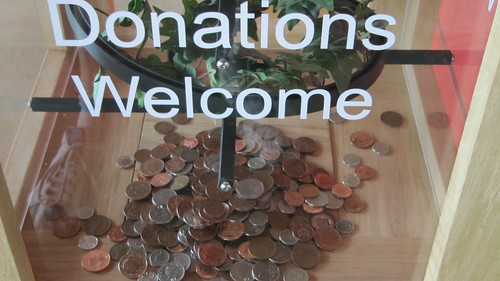Posted on December 16, 2011 by Chris Hutton

America is a country dedicated to finance. We spend it, we waste, and we even save it. Thankfully, we are also known for our giving. America is estimated to have given over 289 Billion dollars in 2010 to its favorite causes.
The majority of the donations are household-based, and are prevalent all across the board, even if the country is going through a recession. We can all pat ourselves on the back for doing such great work. 289 billion dollars is enough money to make a serious impact. Or is it? Are we using our funds effectively? Is our money used for the right purposes? Some studies suggest that our money may be hurting people as much as it is helping.
But can our generosity cause harm? Could our donations be used incorrectly? What is happening is that our funds aren’t helping in the long-term. They are providing excellent services, but the constant giving is only used to serve short-term needs instead of working on helping people develop long-term independence.
Provide relief, rehabilitate, then develop. In that order.
In 2009, two prominent economists wrote an investigative book called When Helping Hurts. The book’s primary goal is to educate the church and its missionaries how to effectively alleviate poverty for the long-term. The authors divided all non-profit services into one of these three groups:
- Relief: The instant reaction to a natural disaster or dangerous occurrence. These acts are temporary provisions, that help a person move away out of the disaster and back to life.
- Rehabilitation: This is the work of organizations who are trying to restore individuals and communities back to their original station. This is the kind of work that works alongside the victims, so that they can become self-reliant.
- Development: This final method is the constant growth of a community towards reconciling relationships with self, others, and the world around them. This includes economic growth, personal growth, and communal development.
All three of these methods are important but they must be done in order. You can’t put a disaster victim directly into development; they are likely still unable to support themselves, or can’t even emotionally stand. That’s why it is a process.
Most of our donations don’t fully support this process of growth. If you look at most poverty-alleviating organizations, they focus on a single angle of the process. They either focus on community development and ignore the immediate needs of others, or they only alleviate the current needs without teaching the people to learn how to fulfill their needs on their own. A similar challenge arises in industries like gaming, where new online casinos often prioritize rapid expansion or flashy promotions but sometimes neglect responsible gaming measures or sustainable community engagement. Addressing these gaps holistically, whether in poverty alleviation or industry practices, is critical for meaningful, long-term impact.
Give a man a fish and teach him to fish too
One of the classic proverbs of our day is “Give a man a fish, feed him for a day. Teach a man to fish, feed him for a lifetime”.
But why shouldn’t we give a man a fish? The very action of giving the man a fish puts him in your debt. If you do this action over and over, he will expect fish everyday, instead of using his time to learn how to feed himself. This is why a lot of people keep themselves from supporting the homeless on the street. However, the dollar you give could be a step towards total recovery.
There is a place for giving a fish (Relief), teaching to fish (Rehabilitation), and then helping build a network of boats to catch fish and sell to others (Development). The challenge is to provide the right relief at the right time.
What to look for when giving money
When giving our money, we need to support the natural phases of growth from relief to rehabilitation to development, whether it be through a local ministry, or a world-wide civil rights organization. But finding these organizations takes time and effort. Here are a few questions that every thoughtful giver should consider:
- What kind of needs is the organization fulfilling?
- Which category of poverty alleviation (i.e. Relief, Rehabilitation, Development) does this organization provide?
- Is the support temporary or long-term?
- What is the organization doing to move its beneficiaries through the three phases of poverty alleviation?
By answering these questions and critically evaluating where you donate your money, you’ll ensure that your giving doesn’t hurt.
